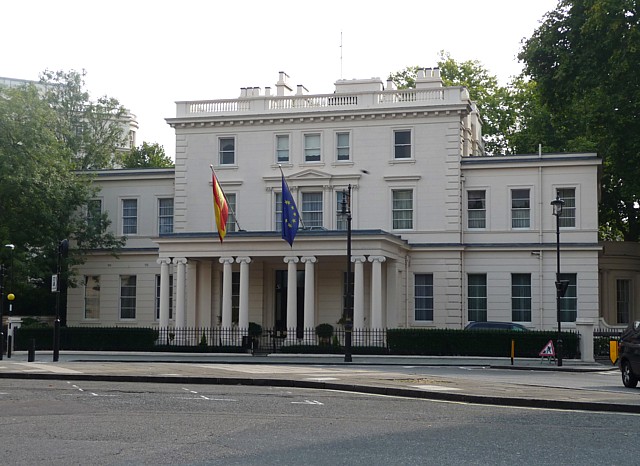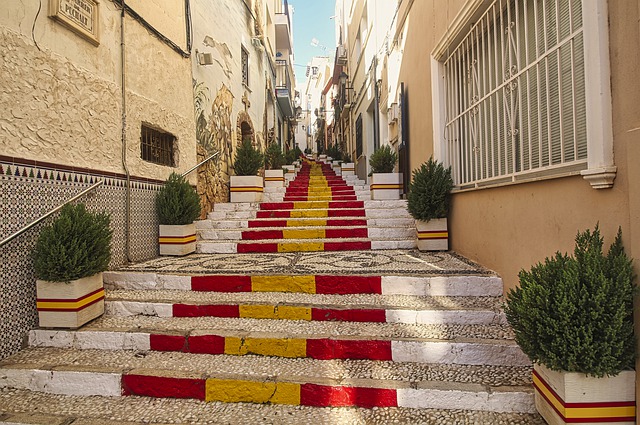Since Brexit came into force on January 1 2021, UK nationals wanting to move to Spain or spend part of the year here have a much harder task ahead than they used to.
It will generally be harder to land a job or set oneself up as self-employed in Spain as a non-EU national, and the financial requirements for residency are more demanding than for Britons who were already registered as residents – or who can prove they were living in Spain before the start of 2021 and are now registering.
EXPLAINED: How Britons can live and work in Spain after Brexit
The other main pitfall for Britons in Spain is that without residency or a visa, they can only spend 90 out of 180 days in Spain (and the Schengen Zone).
However, showing you have the financial means to care for yourself and your family is one of the best ways to solve this.
This article is therefore geared to UK citizens who have either not landed a job in Spain yet, are not planning to work, study, do business or invest in the country and are not intending to obtain residency through having Spanish family roots or an EU partner.
The main focus will be the non-lucrative residency permit and any other option available to UK nationals for obtaining residency through financial means.
What is Spain’s non-lucrative residency permit?
A non-lucrative visa is an authorisation that allows non-EU foreigners to stay in Spain for a period of more than 90 days without working or carrying out professional activities, by demonstrating that they have sufficient financial means for themselves and, if applicable, their family.
In Spanish it’s called a “visado de residencia no lucrativa” and it’s often referred to as a retirement visa, as this is the best option for retirees from non-EU countries who want to move to Spain.
It is however available to third country nationals of all ages who can prove they have the financial means, and is also a good option for UK nationals who want to first travel and get to know Spain better for a year before starting work, as it allows for an easy conversion to a work permit.
Spain’s non-lucrative residency permit is a temporary residence visa which lasts for one year. Britons will still need to apply for a TIE residency card once they obtain their ‘NLV’ (non-lucrative visa).
The first and second residency renewals last for two years each, after which five years of residency will have been obtained and therefore the possibility of applying for long-term residency, which lasts for five years.
After ten years of residence in Spain, British citizens can obtain Spanish citizenship, although they will technically have to renounce their British nationality in the process.

The Spanish Embassy in London. Photo: Stephen Richards/Wikipedia
How much money do Britons need to show to get Spain’s non-lucrative visa?
This is a trickier question than it may seem as there are often discrepancies in what constitutes “sufficient financial means” between Spain’s regions, provinces and even the Spanish consulates and embassies from which foreigners apply for the visa (you apply from the UK, not from Spain).
Spain’s Royal Decree states that sufficient financial means “will not exceed the level of resources by which social subsidies are granted to Spaniards or the amount of the minimum Social Security pension”.
The Spanish government is referring to the IPREM, an indicator that in 2021 stands at €564.90 (£488.34 with the current exchange rate) per month, just under €30 more than in 2020.
The standard financial requirement for non-lucrative visa applicants is 400 percent of the IPREM: €2,259 (£1,952) per month.
So for a UK national wanting to apply for the non-lucrative residency permit for Spain for the first time (it lasts one year), the amount they need to prove is €27,115 (£23,436).
For every family member included in the residency application it’s an extra 100 percent of the IPREM you need to prove you have: €6,778 (£5,859) for the year.
So if a British couple is applying, it’s €33,894 (£29,300) annually in savings or a monthly income through investments, pensions or other assets of €2,824 (£2,441) a month.
For a UK family of three it’s €40,672 (£35,156); for a family of four it’s €47,450 (£41,015) and so on, adding €6,778 (£5,859) for each family member.
If you’re renewing your non-lucrative visa for the first and second time, bear in mind that you will have to prove you have 800 percent of the IPREM as the renewed residence permit is valid for two years.
For an individual that is €54,230 (£46,869) that they can prove they’ll have available.
READ ALSO:
- BREXIT: What Britons need to know about visas for Spain
- What foreigners should be aware of before becoming residents in Spain
Remember that these figures are to be used as a reference, given the disparities in judgement of how much money constitutes ‘enough’ by the different immigration offices across Spain and Spanish embassies and consulates abroad. Remember to also factor in changing currency exchange rates.
Balcells Group, an immigration law firm based in Spain, states that “depending on which consulate you apply in (for example in Washington or Moscow), the minimum amount is much higher” as the initial visa application has to be done in the country of origin or where you currently reside.
“There isn’t an exact amount given by Spanish authorities but from my experience it’s upwards of €30,000, although the figure can vary,” Margaret Hauschild Rey, an immigration lawyer for Madrid-based English-speaking law firm Bennet&Rey, told The Local.
“Obviously the more assets you can prove the better.”
The documentation required as proof of income can also vary, but many consulates require a recent bank account certificate, statements from the past six months and on occasions credit cards or property values can also be presented.
Are there any other important factors Britons should be aware of?
Aside from being able to prove a reliable, ongoing source of income and substantial savings, keep in mind that you will have to take out comprehensive private health insurance which offers the same cover as Spain’s public healthcare system.
“What they haven’t always necessarily factored in before committing to residency in Spain is how difficult it can be to obtain private health cover that’s well-priced or even available, especially for seniors or those with pre-existing health conditions,” Hauschild Rey told The Local.
This must be with a Spanish medical insurance company, be at least one year long and offer full coverage with no co-payments.
“Many foreigners are also unaware of the tax implications that come with spending long periods of time in Spain,” Hauschild Rey added.
“Spanish authorities consider you to be a tax resident if you spend more than 180 days a year in the country.
“Our advice is to speak to a fiscal adviser who is familiar with the tax systems of both Spain and the UK– whenever possible – if they want to get a full picture of how taxes and fiscal responsibilities compare.
Although you can’t work in Spain with a non-lucrative visa, you will be able to invest in shares or businesses in Spain as an extra means of income, but remember these will be subject to capital gains tax.
There is one other way that British nationals can obtain residency in Spain through having sufficient financial means: buying a property worth €500,000 through the scheme called “Residencia por adquisición de bienes inmuebles en España” known in English as the Golden Visa scheme.
READ ALSO:



 Please whitelist us to continue reading.
Please whitelist us to continue reading.
Member comments